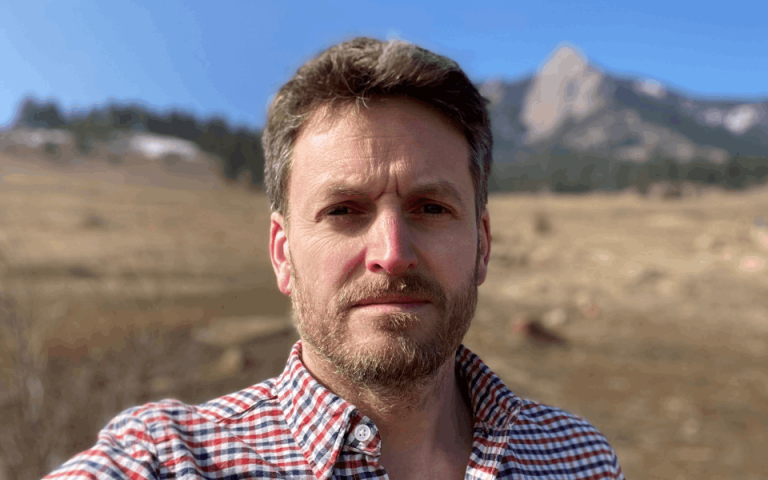Professor Jack Stilgoe
Jack Stilgoe is a Professor of Science and Technology Policy in the Department of Science and Technology Studies.

3 September 2023
When did you take up this position? What was your position beforehand?
I joined UCL in 2013. Before coming back to academia, I worked in the world of policy, for a think tank called Demos and then for The Royal Society.
Tell us about your work at UCL - how do you spend your days, and what makes your role different to similar positions elsewhere?
Every day is different. Over the course of a week, there may be a chaotic combination of meetings - with collaborators, policy stakeholders - research interviews, podcast recordings, teaching, writing and reading.
Coming out of lockdown, I was reminded of what a joy it is to be in London, right in the thick of it. I am also part of The Alan Turing Institute, which is based in the British Library, so I can sometimes be found there.
What are some of your favourite things about working at UCL? How have you found it different to previous jobs?
UCL’s greatest asset is its concentration of brilliant people, almost all of whom are generous, curious and open-minded. We attract interesting, enthusiastic students and the university is always looking for ways to make its research relevant. The culture of the place seems to be whatever the opposite of an ivory tower is. A glass playground, maybe?
Can you tell us about any upcoming research, or future projects that you're looking forward to working on?
We have just begun a five-year UKRI-funded programme on Responsible AI. I’m part of the leadership team, with collaborators from the Southampton, Nottingham, King’s and other Universities around the UK. It’s an interesting mix of computer scientists and social scientists.
As the hype and investment in AI builds, we’ll be looking to understand what the full range of opportunities and concerns are. At the moment, the debate is being shaped by a few tech company leaders in Silicon Valley.
For policymakers to make good decisions about the technology, we need to know more about the limitations of current and future systems and we need to know what ordinary people think about AI.
As well as doing the research, I believe that there’s no point doing the work without telling the world about it. I take as many opportunities as I can to talk to policymakers and journalists.
I worked with the Research Councils to develop an approach to responsible innovation which now shapes how they fund research and train PhD students. I did a report last year for the Government’s Centre for Data Ethics and Innovation on rules for self-driving vehicles.
I run a podcast – The Received Wisdom – with Shobita Parthasarathy from the University of Michigan, in which we discuss science and technology policy and interview researchers in the field.
Have you always been based in London? If not, when did you move here, and how did you find adapting to living in London?
I’ve been here for 25 years. I did a first degree in Manchester and then moved to UCL’s Department of Science and Technology Studies for my PhD. I grew up, rather boringly, in Kent and Surrey. Thankfully, UCL is full of people with far more interesting journeys than mine.
Finally, tell us about your non-work life. Do you have any hobbies, or favourite places to go in London?
I come from a family of musicians. My Dad wrote songs; my Mum was an opera singer; my little brother is a jazz pianist and singer. I play the drums in a North London big band. I have three children, who sometimes practice their musical instruments.
I have recently tried to combine my hobby with my research on AI by looking into the history and politics of drum machines.
I mostly get around London by cycling. If I want to remind myself of the merits of this great city, I stop in the middle of Waterloo Bridge to admire the view.
 Close
Close

